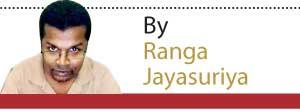05 Jul 2023 - {{hitsCtrl.values.hits}}

Parliament on Saturday approved a domestic debt restructuring program that would rework nearly half of the country’s US$ 42.1 billion domestic debt. The plan covered US$ 19.5 billion of Domestic debt in Treasury bills and bonds held by the Central Bank and superannuation funds (mainly the EPF and ETF) and excluded the domestic banks due to the fears of destabilizing the banking sector.
Domestic debt in Treasury bills and bonds held by the Central Bank and superannuation funds (mainly the EPF and ETF) and excluded the domestic banks due to the fears of destabilizing the banking sector.
The superannuation funds would have the choice of swapping their short-term bills and bonds to those of longer maturity (2027-2038) at 12% interest until 2025 and, after that, 9%, failing which, they have the option to pay a 30% in tax, instead of the current 14% preferential rate.
Fear that the pension funds would be forced to take a haircut on the principle did not materialize, perhaps disappointing those who wished for chaos. A five-day bank holiday preceding the vote also highlighted the concerns over the potential market instability, much less for the function of market forces, but for the deliberate manipulation and disinformation leading to a bank run.
For a country with a history of even the slightest economically meaningful measures being forced to roll back by the protestors, a successful domestic debt restructuring is a salient feat. Optimism might be premature, for the usual naysayers may gang up and challenge the plan in the coming weeks. Some of the already aired complaints are both incorrigible and self-seeking. One such is the reduction of interest rates of treasury bills and bonds held by the pension funds from the current 20-25% to 12% and 9% under the plan. The sky-high interest rates resulted from soaring inflation that hit 70% at one point in the last year. Whereas the inflation has now eased to 12% in June from 25% in May and would fall further, probably to a mid-single digit by August. Interest rates are reflective of inflation. Even a 12% interest for the EPF is a premium compared to the rapidly declining inflation.
True to the Sri Lankan style, the opposition political parties voted against the debt restructuring plan; also true to the Sri Lankan style, without offering a realistic alternative
True to the Sri Lankan style, the opposition political parties voted against the debt restructuring plan; also true to the Sri Lankan style, without offering a realistic alternative. Opposition leader Sajith Premadasa rejected the plan as ‘unrealistic’ and said the working class would bear the brunt of the program while the super-rich benefited from it because of its reliance on superannuation funds that include Employee Trust Fund and Employee Provident Fund.” There is no equal burden sharing in this program,” he said. What he proposes as the alternative is not clear. Earlier the same Mr. Premadasa and the main opposition SJB stalwarts Eran Wickramaratna and Harsha de Silva warned of the collapse of the banking system if they were further burdened. (Still, banks are expected to be treated similarly to the foreign bondholders and bilateral creditors during the restructuring of the locally issued dollar-denominated bonds such as Sri Lanka Development Bonds).
It is disingenuous not to acknowledge Sri Lanka’s modest economic recovery, which is a significant feat set against the performance of the peer crisis hit states such as Lebanon, Zimbabwe, Venezuela or Argentina. Each of these countries is mired in a multitude of domestic ills which are not strangers to Sri Lanka, ranging from domestic political infighting to rent-seeking political elites and runaway corruption. That Sri Lanka could lift itself from the nadir of the crisis might also be because the country had managed to contain some of these ills, though it could not eradicate them all. However, the temptation of the chattering classes is to dismiss this modest progress, such as the sharp decline in the inflation numbers, at the same time fretting over the higher prices of eggs and chicken. The latter, again, is a residual effect of Gotabaya Rajapaksa’s decimation of the local agricultural sector through the ban on chemical fertilizer. The same folks, who were dutifully quoting the official data when they recorded the inflation hitting through the roof and the LKR hitting 360 for a US$, are now dismissing the same data, implying manipulation. That is tantamount to undermining the State in pursuit of self-seeking personal interests, something Sri Lanka’s political class and their sidekicks are not strangers to.
Northern Tamil elites undermined the Sri Lankan state from the very day of its independence. Not to be outgunned, the two main Southern political parties undermined each other, obstructing any progressive policy reforms along the way, leading to the current economic plight resulting from the country’s long-held stagnation in economic reforms.
In their better days, Sri Lankans had an insatiable appetite for conspiracy theories and mob oratory, much less for commonsense policy advocacy. However, having hit the rock-bottom and disposable income decimated, that penchant has been replaced by a degree of commonsense. An industrious government might have unleashed this new found public awakening against the naysayers who stand on the path of economic and political reforms.
On the other hand, by opposing every government measure to lift the country out of the economic crisis, the Opposition might be misreading public opinion. That might come to haunt them in future elections.
Follow @RangaJayasuriya on Twitter
28 Dec 2024 28 Dec 2024
28 Dec 2024 28 Dec 2024
28 Dec 2024 28 Dec 2024
28 Dec 2024 28 Dec 2024
28 Dec 2024 28 Dec 2024